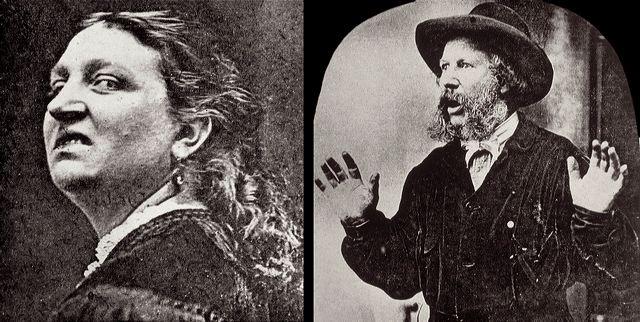I’m terrible at recognizing faces but really good at reading them, at interpreting the microexpressions that reveal inner feelings. Dr. Paul Ekman, the inspiration for the TV show Lie to Me, pioneered the study of facial expressions during his psychological career. From a 2003 New York Times interview with him conducted by Judy Foreman:
Question:
More than 100 years ago, Charles Darwin proposed that human facial expressions are universal. Anthropologists like Margaret Mead thought the opposite. What do you think?
Dr. Paul Ekman:
Initially, back in 1965, I thought Margaret Mead was probably right. But I decided to get the evidence to settle the argument. I showed pictures of facial expressions to people in the U.S., Japan, Argentina, Chile and Brazil and found that they judged the expressions in the same way.
But this was not conclusive because all these people could have learned the meaning of expressions by watching Charlie Chaplin and John Wayne. I needed visually isolated people unexposed to the modern world and the media.
I found them in the highlands of Papua New Guinea. They not only judged the expressions in the same way, but their posed expressions, which I recorded with a movie camera, were readily understandable to people in the West.
Question:
One of your most fascinating findings is that if a person merely arranges his face into a certain expression, he will actually feel the corresponding emotion. In other words, emotions work from the outside in as well as the inside out. Is happiness really as simple as putting on a happy face?
Dr. Paul Ekman:
In a very limited way, yes. The trick with happiness is that while everybody can smile, most people can’t move one crucial muscle around the eyes that must be moved to generate the physiology of happiness. With anger or disgust, though, everybody can make the right facial movements and turn on the physical sensations of those emotions.
Question:
If I received Botox injections all over my face and could not make normal expressions, would my emotions be similarly curtailed?
Dr. Paul Ekman:
Probably not. I did a study with Robert Levenson, professor of psychology at the University of California at Berkeley, on people who had been born with facial paralysis. We found no impairment in their ability to recognize or experience emotions. There is a problem with Botox, though. Limiting facial animation may make people less appealing.•
Tags: Charles Darwin, Judy Foreman, Margaret Mead, Paul Ekman, Robert Levenson

